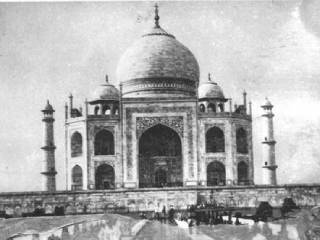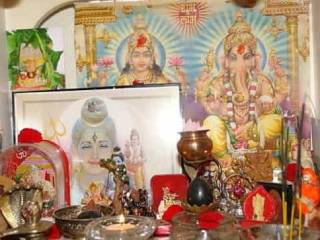
This is contrary to historiographers’ interpretations of Indian freedom struggle. It was not because of Mohandas Karamchand Gandhi, but because of Subhas Chandra Bose the British left India.
This would certainly be a great surprise to those who believe in Nehruvian interpretation of history. But the fact of the matter is that this was the truth.
It was one of the best kept secrets till date, thanks to Jawaharlal Nehru and his Congress. The truth has finally become official as National Security Adviser (NSA) Ajit Doval retold it.
It was the year 1956. Justice Phani Bhusan Chakravartti, then Chief Justice of Calcutta High Court, asked visiting British Prime Minister Clement Atlee about why the Britishers left India. Citing the conversation, NSA Ajit Doval said in a recent Conference:
“Clement Atlee was asked that why did you (the British) leave India, after all you had won the Second World War. The burst was over since then. The Quit India Movement was a flop in 1942. So what was the tearing hurry in 1947 that you decided to leave the country immediately?
Then British Prime Minister replied it was (because of) the spark that Subhas Chandra Bose created among the soldiers of Indian Army. Atlee said, ‘It was the threat of Subhas Bose and the rise of Indian nationalism from which we understood that it was a matter of time’.”
Recall Royal Indian Navy Mutiny. The stories of Subhas Chandra Bose and INA’s fight during the Siege of Imphal and in Burma were seeping into the glaring public-eye. From the initial flashpoint in Bombay, the revolt spread to Karachi and Calcutta. There was similar resistance in Indian Army, thanks to the influence of Subhas Bose.
NSA Ajit Doval said:
“British understood that the revolt in Indian Army was something that they couldn’t have handled.”
The NSA explained how Subhas Bose’s Indian National Army (INA) is the sole example in the annals of warfare.
“Of the entire strength of 60,000, two-third soldiers of the INA died fighting the British. But still the soldiers kept on fighting for an Independent India.”
Exposing Congress’s dirty politics over freedom struggle, Ajit Doval further said:
“The soldiers of INA were neither rehabilitated nor integrated into the Indian Army.”
For Mahatma Gandhi, peaceful non-cooperation movement was a means to evict British from India. In sharp contrast, Subhas Bose took the path of armed struggle to throw British out of India.
Mahatma Gandhi’s contribution to freedom struggle can’t be discounted. But the fact of the matter is that the historiographers have deliberately ignored Subhas Bose’s decisive role in the freedom struggle. It’s time Indian history did justice with Netaji.
Source : Niti Cetral

 Mizoram: EC accepts Christians’ demand to defer counting on Sunday, but what if Hindus had made a similar demand?
Mizoram: EC accepts Christians’ demand to defer counting on Sunday, but what if Hindus had made a similar demand? Sign Petition : Immediately repeal the draconian and unconstitutional ‘The Waqf Act, 1995’
Sign Petition : Immediately repeal the draconian and unconstitutional ‘The Waqf Act, 1995’ Shriram : Sri Lanka’s saviour
Shriram : Sri Lanka’s saviour Why it is so cool to malign Hindu gods and goddesses, but it may not be that easy now
Why it is so cool to malign Hindu gods and goddesses, but it may not be that easy now Shocking Truth of Taj Mahal exposed by Late Pujya P. N. Oak
Shocking Truth of Taj Mahal exposed by Late Pujya P. N. Oak How are Hindus treated in states where they are in a minority?
How are Hindus treated in states where they are in a minority?